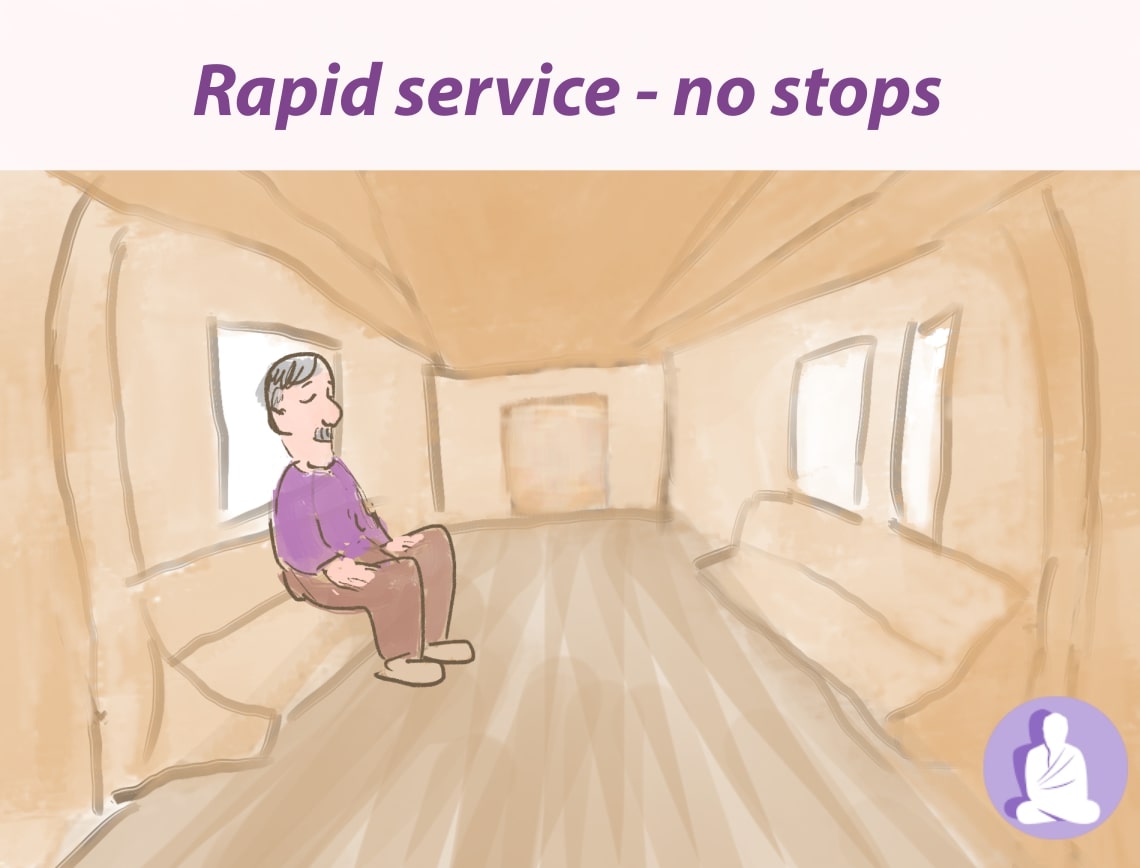Why is the mind often into cravings and worries and is unable to simply be quiet and at peace? Why does it stay in feelings of unhappiness?
Babaji gives the example of someone who is holding on to a pillar tightly, shouting, ‘Help, this pillar is holding me, this pillar is holding me!’
Eventually a wise man approaches, calms the person down and assures, ‘It’s not the pillar which is holding you – you are holding the pillar’. The person realises that they had been the one holding the pillar all along, not the other way round. In so doing they are able to gradually let go.
Just like this, the reason thoughts remain in the mind is because we are holding onto them. We keep adding fuel to the thoughts, we keep entertaining them – this has become a habit within us. Even an unhappy feeling can remain there because we keep holding on to it and are unable to let it go.
What is required is a technique to enable us to let go and purify the mind of these thoughts. That is what this ancient practice of meditation is. When we practice regularly just to watch and not get involved in the thoughts, gradually they disappear. The mind becomes purified of its acquired habits which it had accumulated since time immemorial. The mind becomes cool, free from tension, fear and stress. We can apply the mind with our best concentration, unimpeded by distractions and also enjoy that real peace that hitherto had been so elusive to us. That peace is in fact the true nature of the mind when it is not holding on to thoughts.
#meditate
#letgoofthoughts
Our courses and sessions are designed to help you establish a daily practice.




